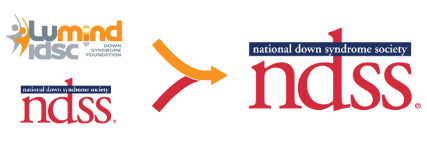Long-COVID in adults with intellectual disability
In a recent report, the National Task Group on Intellectual Disabilities and Dementia Practices (NTG) published an article providing background information on the residual and potentially long-term effects of Long-COVID, also known as post-COVID, and its effects on populations with intellectual disabilities who have been infected by the SARS-CoV-2 virus.
What is Long-COVID?
The Centers for Disease Control and Prevention (CDC) defines Post-COVID or Long-COVID as the persistent symptoms caused by “being infected with the COVID-19 virus and then experiencing long-term physiological and neurological effects from the infection”. Post-COVID conditions are a wide range of new, returning, or ongoing health problems that people experience after being infected with the COVID-19 virus.
When can Long-COVID be identified?
According to the CDC, most people get better within a few days to some weeks after the infection, which means that Long-COVID can be identified within four to twelve weeks after the infection. Some post-COVID cognitive symptoms are experienced days after being diagnosed with COVID-19 but may also appear later after recovery from the physical effects of COVID-19.
Currently there is no test to specifically diagnose post-COVID, but research is emerging. Experts are still working on finding out more about the long-term risks of Long-COVID, and whether it affects children and adults at the same rate.
What is brain fog?
Although not a scientific term, this is a common symptom that affects people after a COVID-19 infection. It causes cognitive impairment, which means that they have a harder time thinking clearly. Brain fog can also affect motivation and carrying out daily activities.
Symptoms of Long-COVID:
- Fatigue
- Cognitive impairment
- Confusion
- Difficulty staying focused
- Difficulty following conversations
- Difficulty planning
- Language use problems
- Feeling “out of it”
- Impulsive
- Memory impairment
- Showing poor judgment
Losses of taste and smell during the infectious phase have been linked to more severe cognitive impairments months later, even if other symptoms have been mild.
Researchers made some troubling findings in which older adults may be more susceptible to significant cognitive impairment, with some reporting the presence of Alzheimer’s disease-like symptoms. At the same time, some adults remain at increased risk for dementia, epilepsy, psychosis, and brain fog two years after contracting COVID-19.
It’s important to note that persistent symptoms of brain fog should be taken seriously.
What to do if your loved one with Down syndrome shows symptoms of Long-COVID?
Screening and assessment should be undertaken to determine Long-COVID.
According to the NTG, here are few useful tips for helping your loved ones:
- Periodic medical and health checks for physical symptoms
- Track function and cognitive abilities and document changes
- Adapt care/support approaches as you would for mild cognitive impairment or early dementia
- Implement a “dementia care plan” in anticipation of changing needs
- Confer with clinicians with Long-COVID experience for overall post-COVID care
- Refer to neurologist or other clinician when cognitive symptoms worsen
To find out more, read the official report here
